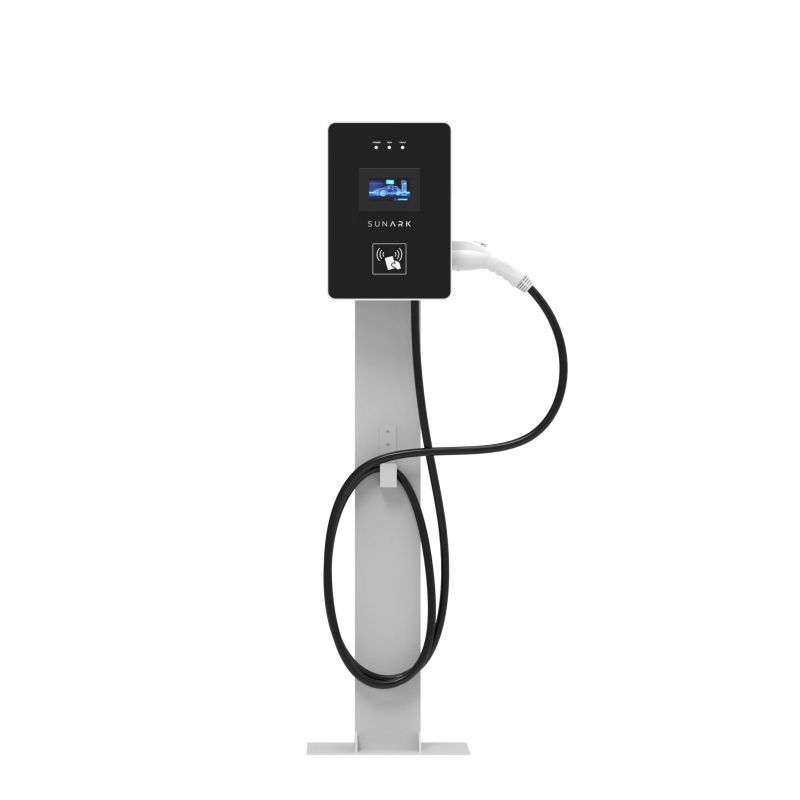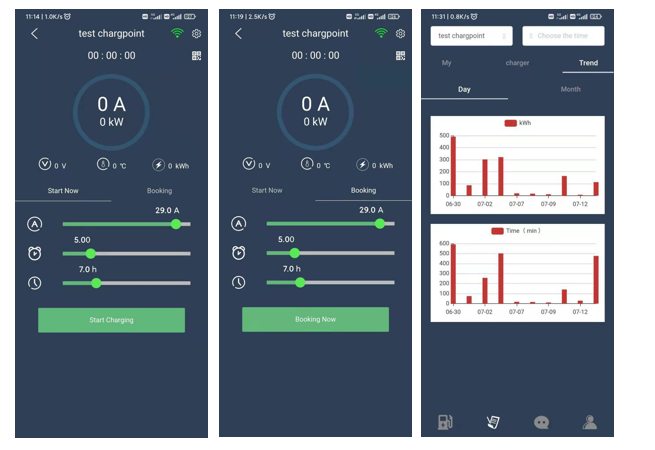DC fast chargers require specialized technology and are more expensive to install compared to standard AC chargers. However, they play a crucial role in enabling long-distance travel with electric vehicles by providing convenient and efficient charging options.
Standard:
SAE Standard / IEC StandardConnector type:
Type 1 / Type 2Connector Mechanical Operating Life:
≥10000 times
EV chargers can be divided into several types based on the charging method and power level. Here are the common categories:
Level 1 Chargers: These are the basic chargers that come with most electric vehicles. They use a standard household outlet (120 volts AC) and provide a slow charging rate of about 2-5 miles of range per hour of charging. Level 1 chargers are typically used for overnight charging or when a higher charging rate is not required.
Level 2 Chargers Level 2 chargers require a 240-volt AC power supply, is similar to the power supply used for large appliances like electric dryers and ovens. They provide a faster charging rate compared to Level 1 chargers, typically delivering 1030 miles of range per hour of charging. Level 2 chargers are commonly used in residential, commercial, and public charging installations.
DC Fast Chargers (DCFC): DC fast chargers, also known as Level 3 chargers, are high-powered chargers that provide a significantly faster charging rate compared to Level 2 chargers. DC fast chargers deliver direct current (DC) power to the vehicle's battery pack, bypassing the vehicle's onboard charger. They can provide up to 80% charge in about 30 minutes, depending on the vehicle and its battery capacity..

DC fast chargers are further divided into several subcategories based on their charging standards:
a. CHAdeMO: This is a fast charging standard developed by Japanese automakers. It is commonly used by Nissan and Mitsubishi electric vehicles.
b. CCS (Combined Charging System): CCS is a fast charging standard that combines the existing AC charging system and adds direct current (DC) fast charging capability. It is commonly used by many European and American automakers.
c. Tesla Supercharger: Tesla has its own proprietary DC fast charging network known as Tesla Superchargers. These chargers are specifically designed for Tesla vehicles and provide high-speed charging for Tesla owners.

A DC EV charger, also known as a DC fast charger or DC quick charger, is a type of electric vehicle (EV) charger that delivers direct current (DC) power to quickly charge an electric vehicle's battery. Unlike standard AC chargers which convert alternating current (AC) to DC within the vehicle, DC chargers provide DC power directly to the vehicle, allowing for faster charging times.
DC chargers are capable of delivering high power levels, typically ranging from 50 kilowatts (kW to over 350 kW, depending on the charger's specifications. This enables rapid charging and significantly reduces the time required to charge an EV compared to slower AC chargers. DC fast technology is commonly used for charging stations located along highways, at rest areas, or in other public spaces where drivers might need to quickly recharge their vehicles during longer journeys.

Charger Management Software: Many charging station providers offer software platforms that allow users to monitor and manage their EV chargers remotely. These platforms provide real-time data on charging sessions, energy usage, and payment processing.
Mobile Apps: Some charging station manufacturers provide companion mobile applications that allow users to monitor their charging sessions, check the status of chargers, and receive notifications or alerts.
Networked Charging Stations: Charging stations connected to a network can be monitored centrally by charging station operators or service providers. They can access data on charging status, energy consumption, and any faults or maintenance requirements.
Energy Management Systems: In commercial or public charging installations, energy management systems may be used to monitor and optimize the charging process. These systems can gather data from multiple chargers, manage charging schedules, and balance energy demand.
FAQs:
Q1: Do you support OEM/ODM?
A:Definitely, OEM&ODM service is supported with a certain quantity,including customize logo,package and label;
Q2: What's the production time?
A: The production time is normally 15 working days. but we will always prepare some stocks for popular models.
Q3: Can you provide DDP service?
A:Yes, if you are a personal customer and don't want to deal with the customs, we can provide DDP service to your address.
Q4: What about the warranty and how to claim?
A: Warranty period are 5 years since you receive the product, our professional after-sales team will deal with all warranty issues.